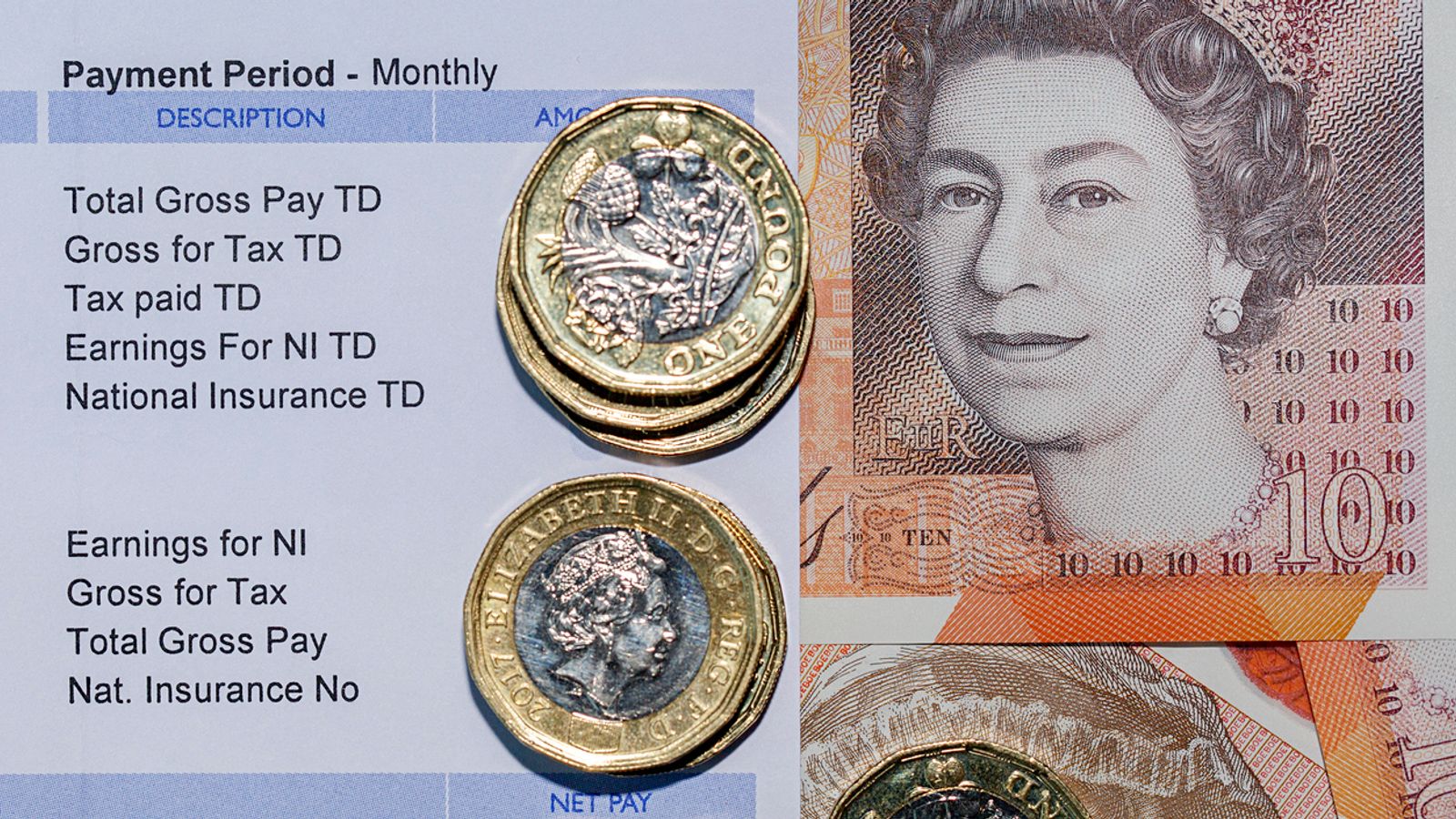The latest employment figures show inflation taking a bigger bite out of regular pay and an unexpected jump in the jobless rate as people seek to better shield themselves from the cost of living crisis.
The Office for National Statistics (ONS) reported that the jobless rate rose to 3.8% in the three months to April despite a new record high for employment.
It is potentially explained by a rise in the number of students, who are measured as economically inactive, as the ONS has already reported record numbers seeking paid work or better-paid employment.
There has been a rush to secure higher take-home pay as inflation has surged – striking a 40-year high in April following an unprecedented hike in the energy price cap.
The squeeze on incomes from rising bills across the board has contributed to a marked slowdown in the economy.
The ONS reported that real wages – a measure of regular wage growth when inflation is factored in – had now dropped by 2.2% on the year from 1.2% during the three months to March – partly reflecting the leap in inflation in April.
When the effects of bonuses were factored in, wages continued to be in growth but at just 0.4%.
Sam Beckett, ONS head of economic statistics, said: “Today’s figures continue to show a mixed picture for the labour market.
“While the number of people in employment is up again in the three months to April, the figure remains below pre-pandemic levels.
“Moreover, although the number of people neither in work nor looking for a job has fallen slightly in the latest period, that remains well up on where it was before COVID-19 struck.
“At the same time, unemployment is close to a 50-year low point and there was a record low number of redundancies.
“Job vacancies are still slowly rising, too. At a new record level of 1.3 million, this is over half a million more than before the onset of the pandemic.”
She added: “The high level of bonuses continues to cushion the effects of rising prices on total earnings for some workers, but if you exclude bonuses, pay in real terms is falling at its fastest rate in over a decade.”
The Bank of England is widely expected to hike Bank rate again on Thursday as it tries to stop the jump in inflation from turning into a longer-term problem if employers resort to increasing their pay sharply to fill vacancies.
So-called secondary inflation is a major concern for policymakers as surging wages are seen as making inflation more stubborn.
However, the rate-setters are facing down a challenge from unions who are widely campaigning for wage growth in line with inflation for their memberships.
The main battlefront is on the railways where the biggest national strike since 1989 has been threatened by the RMT union later this month, with the action by 40,000 rail workers coinciding with strikes on London’s Tube network on 21 June.
